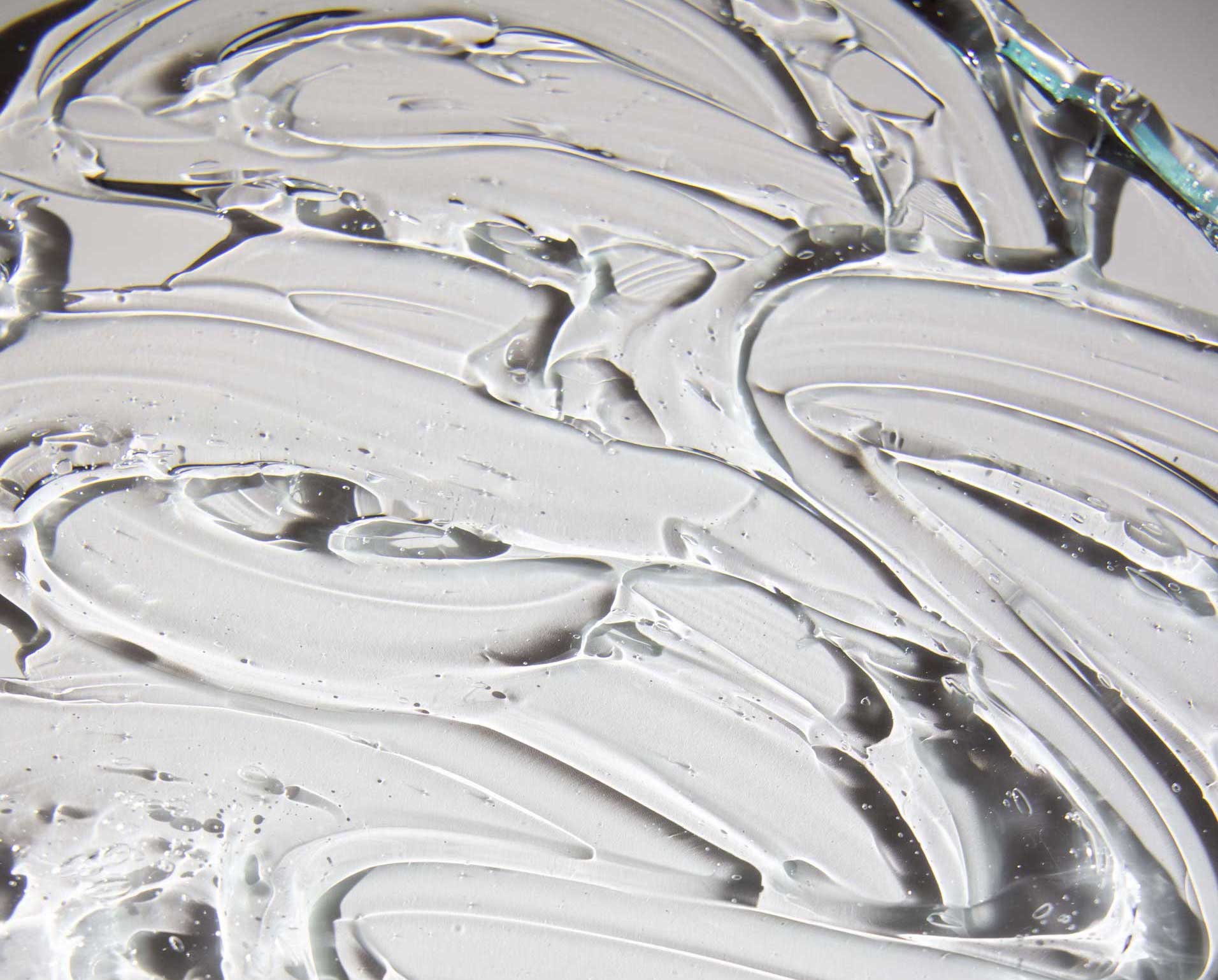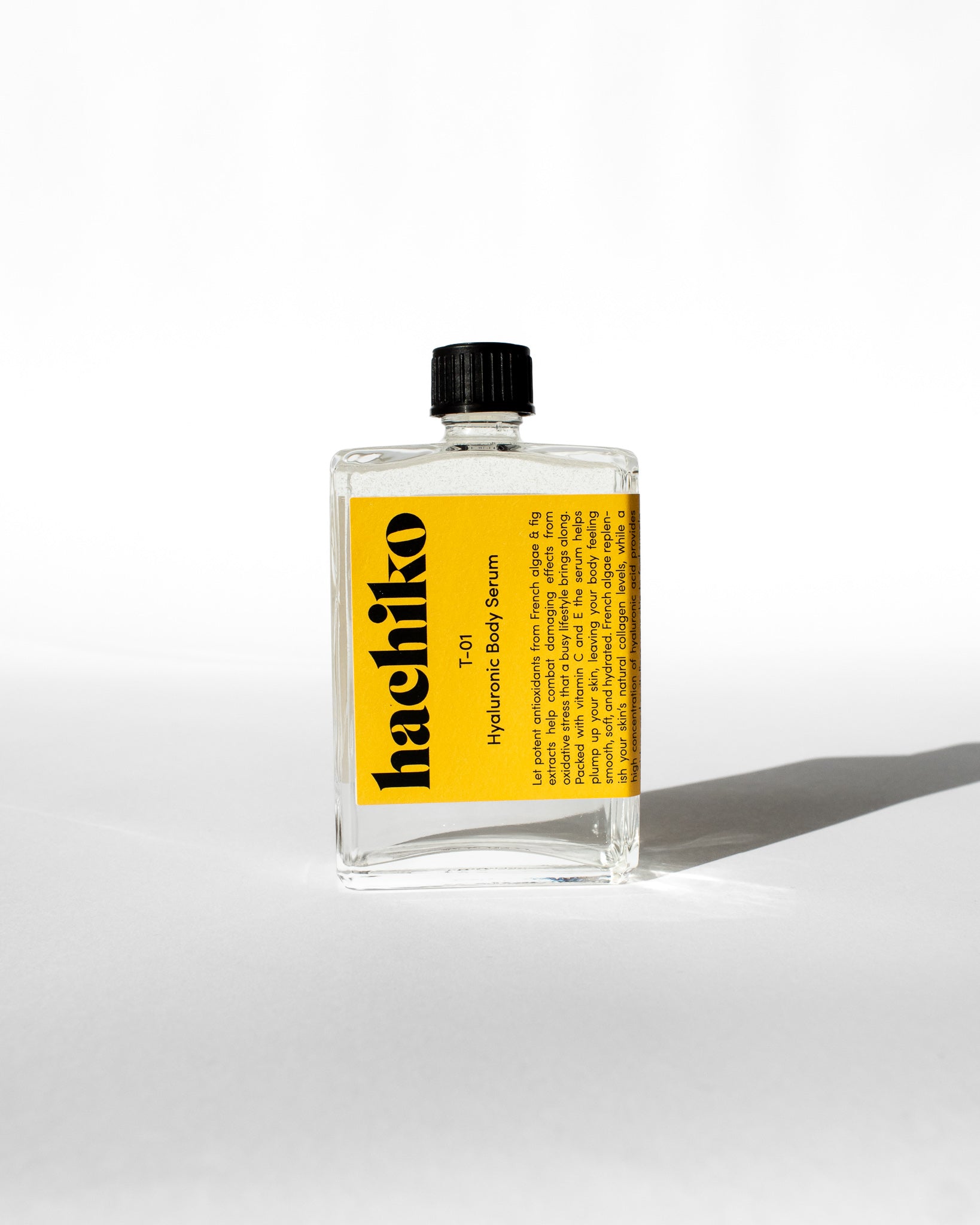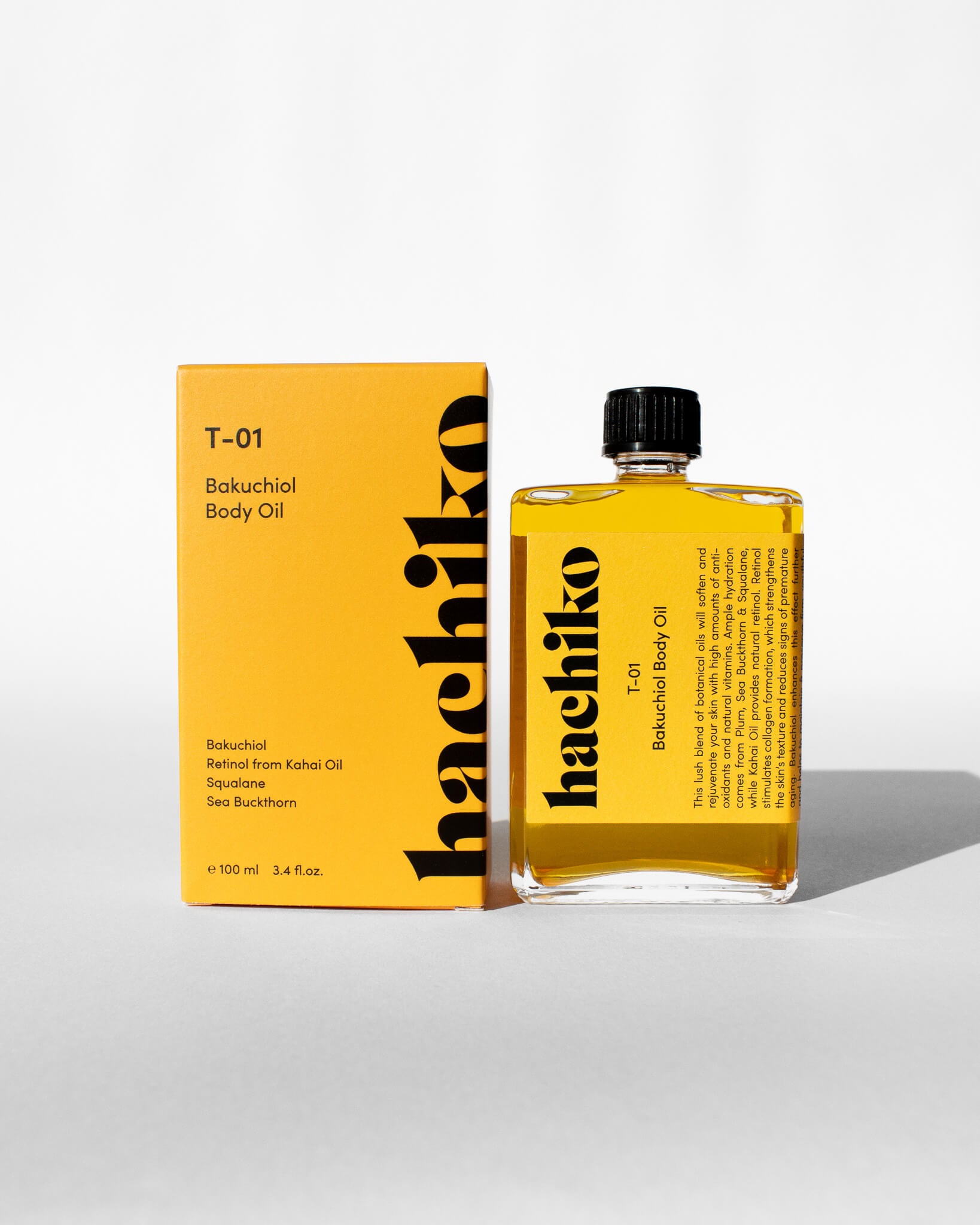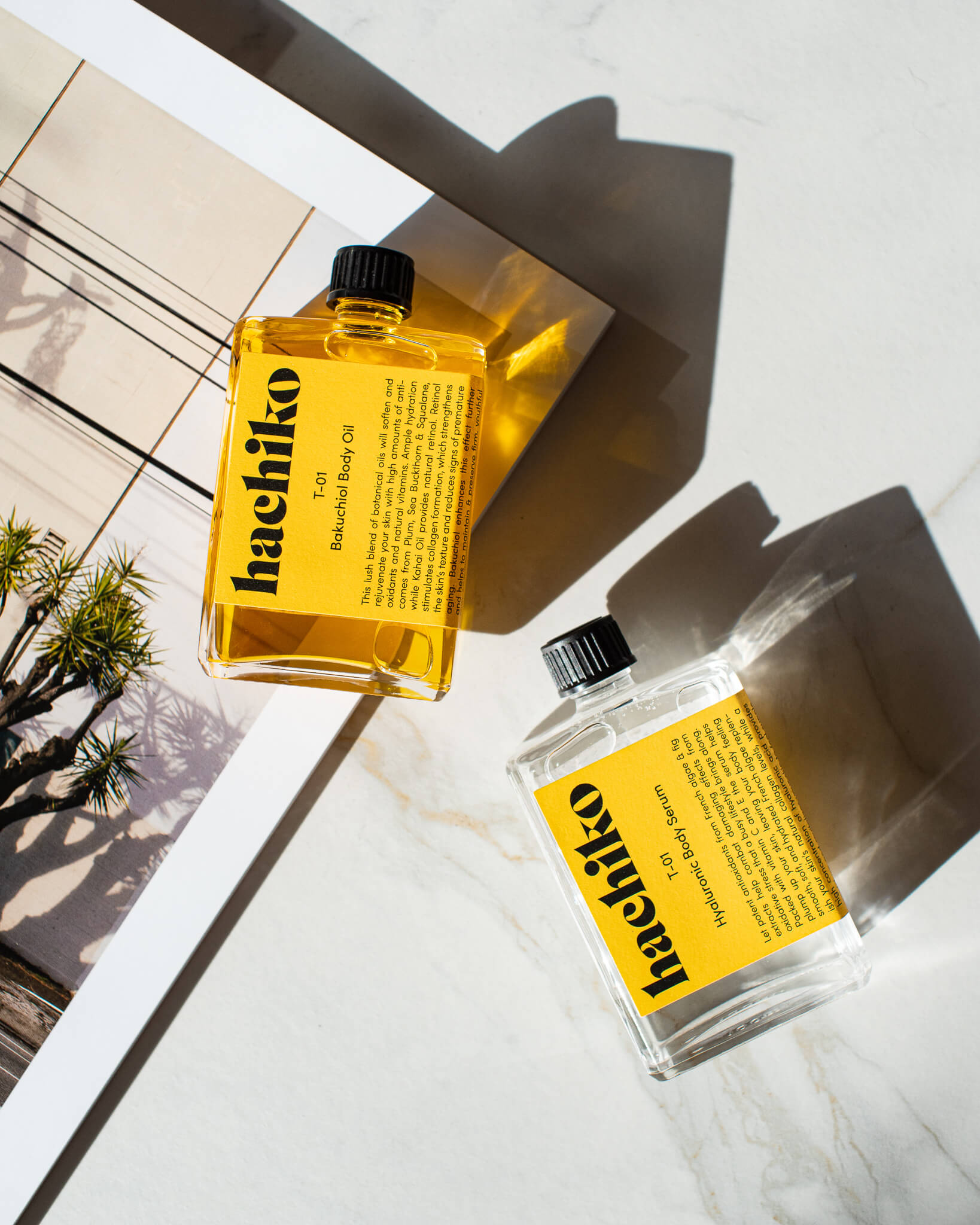
Hyaluronic acid has held a prominent position in cosmetics for a long time. But what is hyaluronic acid? And why should it be part of your skincare? We have gathered all essential information about hyaluronic acid for you. Get an idea of why hyaluronic acid is such a potent active ingredient.
Hyaluronic acid - what is it?
Hyaluronic acid (HA) is a molecule that occurs naturally in the human body. You can find HA in your cartilage, joints, the eye, and skin, among other places. It provides volume and elasticity in these areas and has a shock-absorbing and lubricating effect in joints.
However, more than 50% of hyaluronic acid in the body sits in the skin. You can find hyaluronic acid in the epidermis (top layer of skin) and dermis (layer of skin under the epidermis). The body produces hyaluronic acid by itself, but this ability decreases in the natural aging process. On the one hand, the body creates hyaluronic acid less and less with age. On the other hand, the natural breakdown of hyaluronic acid in the body increases.
Therefore, the optimal amount of hyaluronic acid is no longer attained, which means that the skin's moisture level decreases. Thus, wrinkles or fine lines appear, and the skin loses its firmness and elasticity.
To make matters worse, harmful external environmental factors such as UV radiation can also accelerate skin aging.
Research has found that levels of hyaluronic acid in the epidermis decrease significantly with age. However, it also recognized that it is possible to replenish these reserves through the topical application of hyaluronic acid.
What does hyaluronic acid do?
Hyaluronic acid can hold and bind amounts of water many times its own weight. As a result, it helps increase skin hydration. Improved hydration makes the skin softer, smoother, and more radiant. It also reduces fine lines and wrinkles and slows the development of new ones. Thanks to its hydrating and antioxidative effects, hyaluronic acid stimulates cell regeneration and collagen production.
Numerous studies have been conducted to assess the effectiveness of hyaluronic acid in cosmetic products. The results consistently showed a clear improvement in wrinkle depth, as well as improved skin tone, elasticity, and hydration. Hyaluronic acid has a verified, positive effect on the skin's appearance.
The reduction of wrinkles and fine lines depends on the molecular weight of hyaluronic acid. Lower molecular weight hyaluronic acid can penetrate deep into the skin layers and act more effectively against wrinkles. However, higher molecular weight hyaluronic acid helps moisturize the skin, as it forms a protective layer on the skin that locks in moisture.
Who should use hyaluronic acid?
Hyaluronic acid is very compatible and suitable for all skin types. For dry skin, hyaluronic acid is a proven, beneficial addition to skincare to support the skin's moisture balance. Against premature skin aging, hyaluronic acid can play a vital role in counteracting it effectively. Hyaluronic acid is a valuable addition to your skincare routine.
In addition to the natural aging process, destructive environmental influences like UV radiation amplify premature skin aging. For this reason, you should always apply sunscreen to protect your skin and support the effect of active ingredients such as hyaluronic acid.
Which skin care with hyaluronic is suitable?
Our T-01 Body Serum has a high content of hyaluronic acid. We developed the serum specifically for the body to maintain the skin's firmness and elasticity in the long term. The serum is rich in antioxidants from fig and seaweed extracts, which can fight oxidative stress that increases premature skin aging.
The serum is especially effective when combined with T-01 Body Oil, which is rich in natural retinol and bakuchiol. If applied together, the water-based serum improves the skin's moisture balance. Meanwhile, the oil leaves the skin velvety soft, and supple. Thanks to the selection of high-quality, organic, and light oils, T-01 Body Oil does not feel greasy on the skin but is quickly absorbed. The serum's moisture content improves the oil's absorption even further.
Our body treatment consisting of a Hyaluronic Serum and Bakuchiol Oil is an excellent way to nourish and moisturize the skin.

Literatur:
Schuster, I. (2021). Hyaluronsäure. Potential in Medizin und Kosmetik.
Šmejkalová, D./ Angeles, G. H./ Ehlova, T. (2015). Hyaluronan (Hyaluronic Acid). A natural moisturizer for skin care.
Bukhari, S. N. A./ Roswandi, N./ Waqas, M. et.al. (2018). Hyaluronic Acid, a Promising Skin Rejuvenating Biomedicine: A Review of Recent Updates and Pre-clinical and Clinical Investigations on Cosmetic and Nutricosmetic Effects. International journal of biological macromolecules. 120. 10.1016/j.ijbiomac.2018.09.188.
Nobile, V./ Buonocore, D./ Michelotti, A./ Marzatico, F. (2014). Anti-aging and filling efficacy of six types hyaluronic acid based dermo-cosmetic treatment: double blind, randomized clinical trial of efficacy and safety. J Cosmet Dermatol. 2014 Dec;13(4):277-87. doi: 10.1111/jocd.12120. PMID: 25399620; PMCID: PMC4371636.
Pavicic, T./ Gauglitz, G.G./ Lersch, P. et.al. (2011). Efficacy of Cream-Based Novel Formulations of Hyaluronic Acid of Different Molecular Weights in Anti-Wrinkle Treatment.



